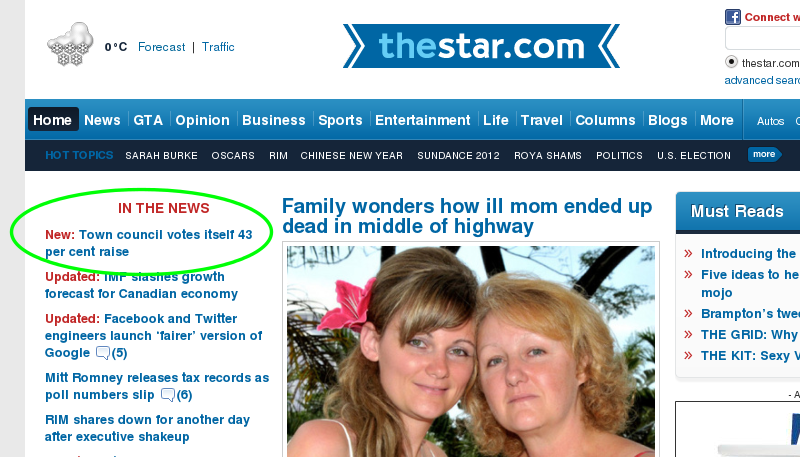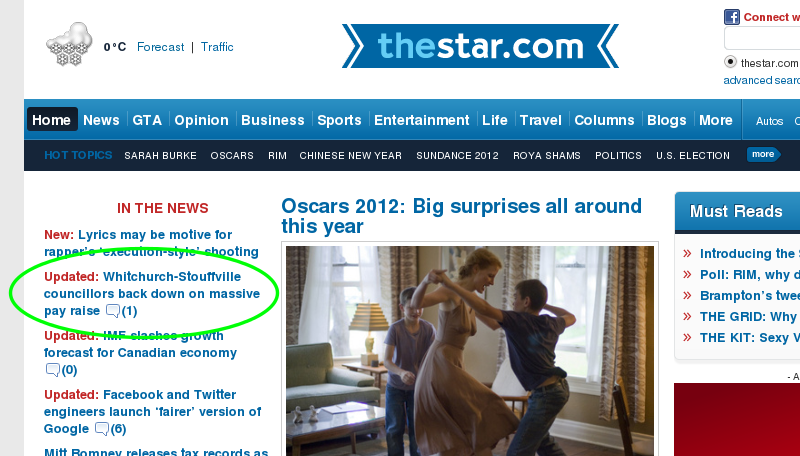Back in January, I wrote about a story appearing on the Star‘s website that was silently updated after it was originally posted so that the new article said exactly the opposite of the original article. The Star‘s public editor responded to my complaint in her column, stating that allowing such silent story changes is “not the view of reputable news organizations that understand the vital importance of credibility.”
I’ve since noticed a number of similar silent changes on the Star‘s website, but none as egregious as yesterday afternoon’s story about Jason Kenney apologizing (or not) for calling a provincial minister an “asshole” in an email. Here was the headline as posted in the afternoon:

The original story said that Kenney had no intention of apologizing and included a quote from a Kenney spokesperson who dismissed the insult, saying that it wasn’t important to comment on every email that Kenney sends (presumably because apologizing to everyone Kenney calls an asshole would be a full-time job).
Shortly afterward, the story and headline were both updated while still posted under the original link:

The new story indicated that Kenney had indeed apologized and the dismissive quote from the spokesperson was nowhere to be seen. This isn’t a mere revision, it’s revisionism.
So here’s my problem: if a story changes after you post it to your website, you should either clearly state in the article that the story has progressed from what was earlier published, or (better) post a separate article with a note in the first article pointing to the new one. Sure, go ahead and fix minor spelling mistakes and grammatical errors in-line. But simply updating a story to this extent without acknowledging it is, well, not the sign of a “reputable news organization.” Another complaint to the public editor is on the way.

